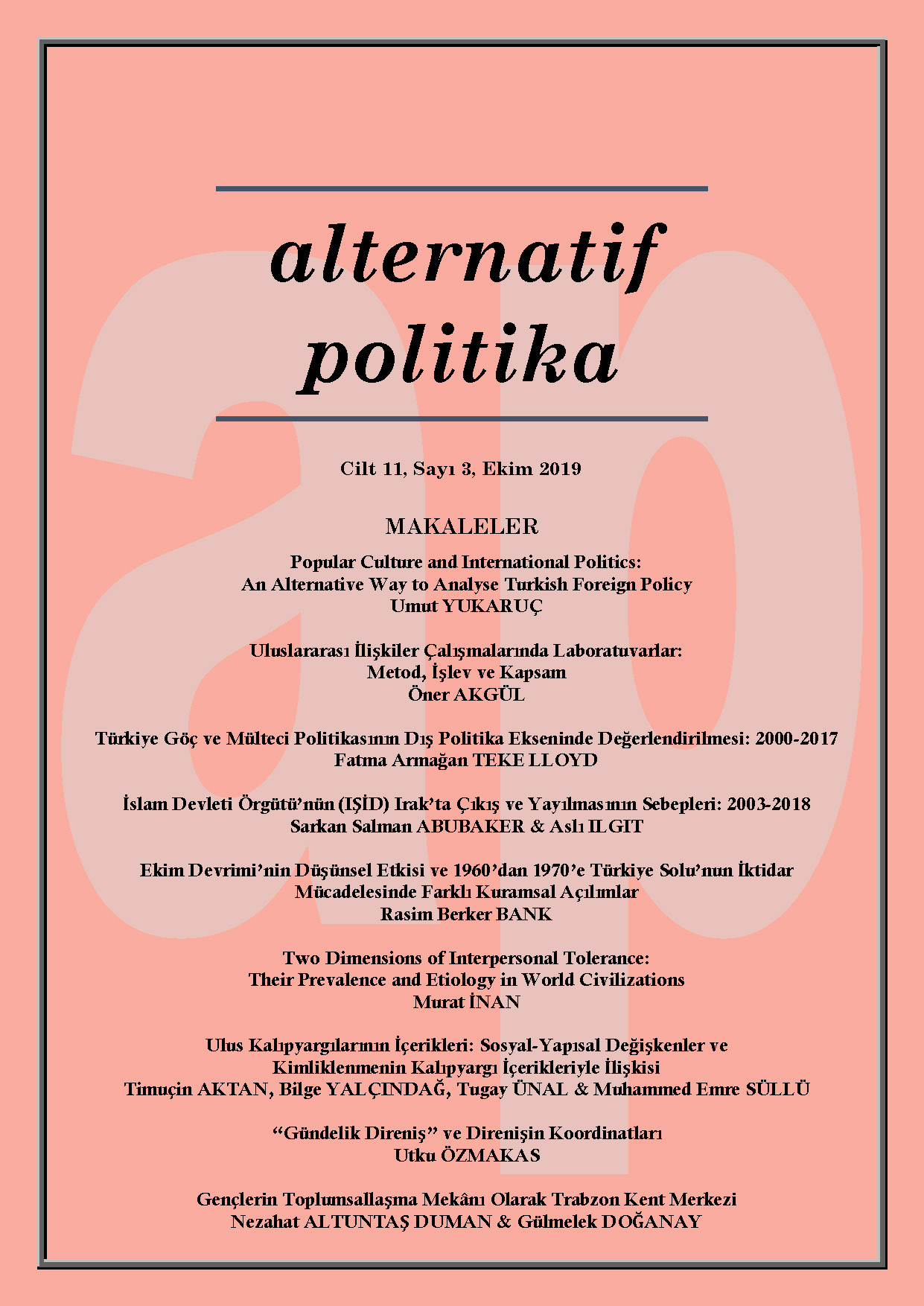ULUSLARARASI İLİŞKİLER ÇALIŞMALARINDA LABORATUVARLAR: METOD, İŞLEV VE KAPSAM
LABORATORIES FOR INTERNATIONAL RELATIONS RESEARCH: METHODS, FUNCTIONS AND SCOPE
Author(s): Öner AkgülSubject(s): International relations/trade, Methodology and research technology
Published by: Rasim Özgür DÖNMEZ
Keywords: Laboratory; Quantitative; Qualitative; Data; International Relations;
Summary/Abstract: The data analysis in international relations is gradually increasing today by researchers and departments of international relations along with the spread of methodological disparity among various social science fields. The empirical research which is an older tradition among Western scholars in IR theory evolved into the experimental fields of laboratories together with the technological development. Beyond the presumptive knowledge, those units both test hypotheses on the phenomena of international relations and provides observable/testable findings about the actual or historical events through the usage of quantitative, qualitative or mixed methods. In other words, these laboratories can present significant information for the political analysis while contribute remarkably to the theory construction for international relations. Fundamentally, the investigated laboratories for international relations include three basic functions. The first function is regarding the basic statistics education for particularly graduate students of IR and trainings on applied qualitative, quantitative and mixed methods for IR. The second one is more appropriate for the researchers of IR field. This function includes event coding through data mining /collecting through using computational methods, creating depositories or textual banks and data processing. The last function is application of advanced methods into the data, developing algorithms and producing predictive systems on international relations. It can be argued here that there is lack or paucity of empirical methodology research in IR departments by referring various authors from Turkey. I argue that the laboratory projects can contribute the methodological development of IR scholars in Turkey. In this context this study was prepared in order to give a brief explanation on the context, scope, institutional infrastructures and functionality of IR laboratories by the aim of integrating it into the Turkish IR scholars.
Journal: Alternatif Politika
- Issue Year: 11/2019
- Issue No: 3
- Page Range: 474-501
- Page Count: 28
- Language: Turkish

